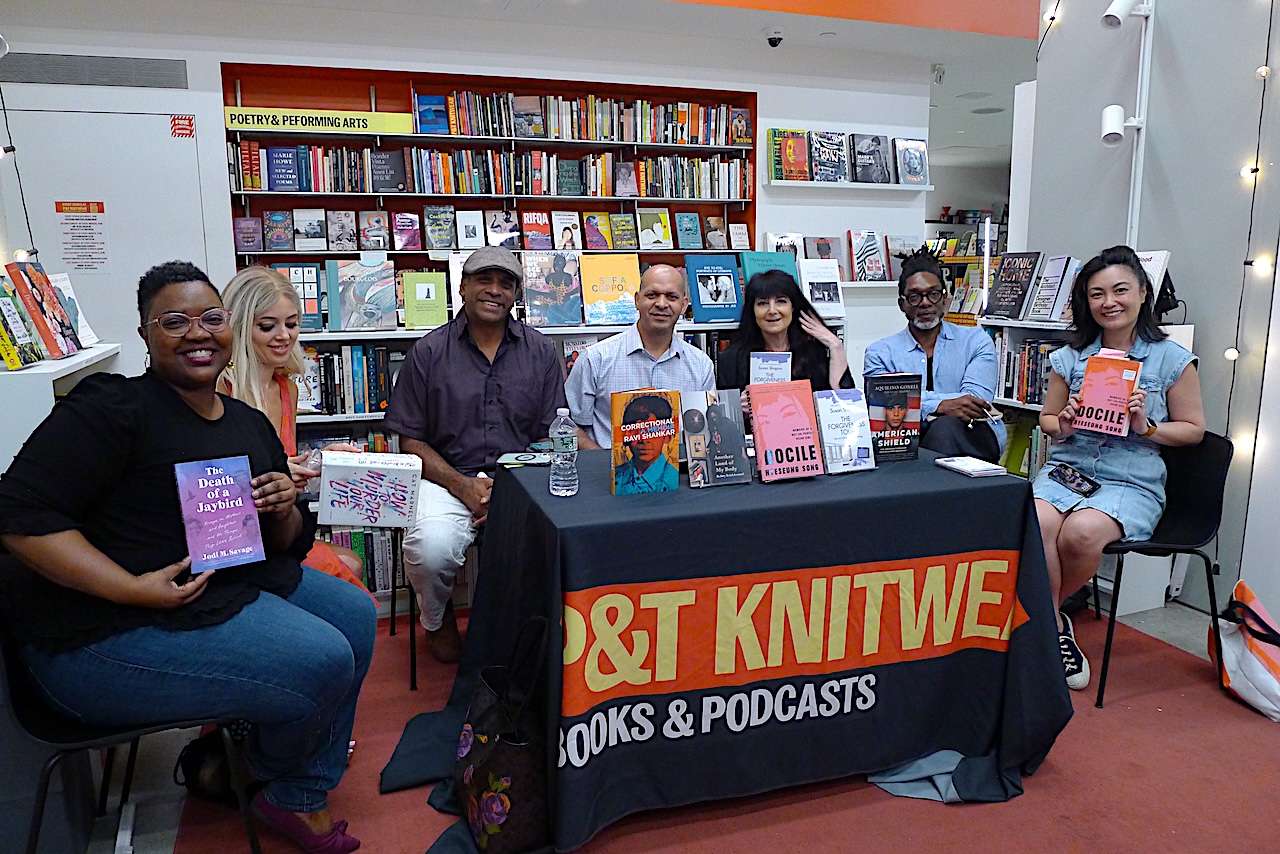BY SARAH CERIO | In August, when most therapists go on vacation, stress tends to jump to an all-time high in New York City. With that in mind, Greenwich Village writing professor Susan Shapiro — a self-described “shrinkaholic” — hosted “The Shrinks Are Away” reading, with “work to soothe the savage urban psyche” during the month when head doctors are out of town, last Tuesday night at P&T Knitwear on Orchard Street.
The exciting roster of local authors included Cat Marnell, a former beauty columnist and New School graduate, who shared engagingly kooky pages from her New York Times bestseller, “How to Murder Your Life,” about her battle with multiple addictions while overseas. Marnell, who was raised by two shrinks in Washington, D.C., told the SRO audience of students and aspiring writers that honesty often presented itself as humor in her work, joking that by your 24th draft, you’ll have edited it enough to make your work acceptable to your family.
Jodi M. Savage, a lawyer by day, read a poignant section from “The Death of a Jaybird,” her debut essay collection that explores her relationships with her mother and grandmother and caretaking, amid the challenges of Black American womanhood. When asked about the importance of writing with candor, Savage, who is currently finishing her MFA at New York University, said “I can’t live with myself if my work isn’t honest.”
First-generation Korean American Hyeseung Song chose a lyrical childhood passage from her evocative memoir, “Docile: Memoirs of a not so Perfect Asian Girl,” published just last week by Simon & Schuster. Her debut tackles immigration, mental illness and how she internalized the “model minority myth.” Song, who lives in Brooklyn and is also a painter, admitted that it took her 20 years to finish and publish the book but that it was worth waiting for.
Next in line was Rodney Terich Leonard, an Air Force veteran and New School and Columbia University MFA graduate who read eloquently from his acclaimed poetry collection “Another Land of My Body,” which touches on Black Southern identity, death and grief. Afterward, he told the crowd, “I walk flat in some areas of my life, but not in my poetry. That’s a space for truth, real and imagined.”
From his moving essay collection “Tallying the Hemispheres,” Indian American professor Ravi Shankar read a hilarious piece about how often he’d been confused with the famous composer of the same name. The award-winning poet and translator said, “I feel a responsibility to tell stories accurately.” He advised newer writers “to move in the direction of your discomfort.”
Sergeant Aquilino Gonell read from his searing bestselling memoir, “American Shield: The Immigrant Sergeant Who Defended Democracy.” The book describes how, growing up in the Dominican Republic, the last thing he ever wanted to be was a troublemaker. He was taught to keep quiet and let other people speak for him. He followed authority figures in the Army and the D.C. Capitol Police, until he was almost killed by the armed mob of insurrectionists at the Capitol on Jan. 6, 2021. Gonell confessed that sharing his story — co-authored by Shapiro — helped him heal from the post-traumatic stress.
Shapiro celebrated the paperback release of her book “The Forgiveness Tour” by reading a mile-a-minute funny passage about a falling-out she had with her addiction specialist at his old office on W. Ninth Street, admitting, “I needed a shrink to help me deal with my shrink.” She recalled an N.Y.U. poetry class she took with the poet Joseph Brodsky, whose worst criticism of his students’ work was “there is no blood here.” She promises her students “writing is a way to turn your experiences into beautiful art.” When asked for advice, the prolific author of what she called “many books my family hates” admitted, “Therapy saved my life.”


Great write-up!